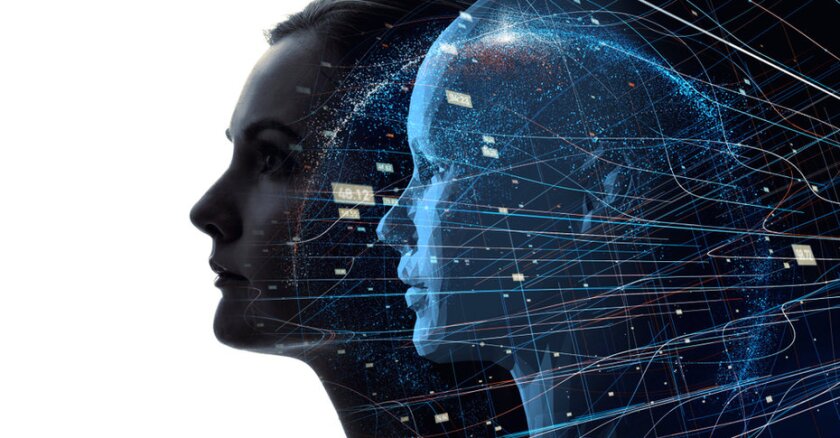Now, artificial intelligence (AI) represents a new frontier with similarly lofty promises. Experts at a recent webinar explored whether AI can succeed where past ed-tech solutions fell short. Their verdict: While AI will reshape the ed-tech landscape, its direct impact on education will depend on how it’s used.
Robert Pondiscio, a senior fellow at think tank American Enterprise Institute (AEI) and moderator of the discussion, opened the webinar with a blunt assessment: “Ed tech has a long-checkered history of overpromising and underdelivering.” AI risks perpetuating the cycle, he warned, unless its role is considered carefully.
Ed-tech tools have become deeply embedded in educators’ daily tasks starting with the student information systems in the 1980s, Arman Jaffer, CEO of Brisk Teaching, an AI-driven teaching assistant platform, said. As tools have grown, they have become disjointed and unwieldy. On average, teachers use 148 different ed-tech tools throughout the school year, according to a 2022 report.
“Educators have become glorified operators of all of these ed-tech tools, but really the one adjective that I think any educator or any district leader would say that does not describe their technology approach is coherent,” he said.
This disconnectedness can make it difficult for technology to have any major effect on teaching itself. AI is better suited for ed-tech workflows, helping to streamline and integrate existing tools rather than dramatically transforming the nature of teaching itself. Still, if teachers are spending less time on menial tasks, it is hard to quantify the potential ripple effects that could have.
AI’s heightened capabilities involving language have advantages and limitations, as Daisy Christodoulou, an education researcher and author, pointed out. The technology might help a teacher provide better or faster written feedback on essays, but Christodoulou says education should re-evaluate its frequent use of written feedback entirely. She argued that written comments are often ineffective because they fail to offer actionable steps for students.
“It’s like telling an unsuccessful comedian to be funnier,” she said. “It’s true, but useless.”
Christodoulou runs an organization called No More Marking. It uses AI to help with written feedback, but instead of having AI generate written comments for a teacher to check, the teacher records audio feedback that the AI compiles into a summary with insights into what the class did well and where it may need additional instruction.
AI’s expertise, like being able to advise a teacher, is where it differentiates itself from ed-tech solutions of the past, John Bailey, a nonresident senior fellow at AEI, said. Unlike the Internet’s focus on making data available, AI can simulate the role of a skilled tutor or teaching assistant, offering tailored support for educators and students.
While recent tools like video libraries have also provided expertise, Jaffer said AI’s adaptability is another element of differentiation. As developers continue to experiment with visual and audio mediums, there will be new opportunities for different kinds of feedback, to Christodoulou’s point. AI is also showing more opportunities to tailor learning at the district, school and instructor level.
“The opportunity that’s so exciting to me, personally, about AI, is that as a developer, as someone who’s working with districts, we don’t need to necessarily bring the pedagogical perspective,” he said. “We can empower educators and their administrators with the tools to be able to create ... the instruction that they want to see in the world.”
Incorporating reflection tools into AI will help both instructors and students avoid using it as a shortcut, said Alex Baron, a director at E. L. Haynes Public Charter School in Washington, D.C. For example, teachers using AI to provide feedback of some kind to students should understand why the AI feedback is good and constructive.
“To paraphrase John Dewey, ‘We don’t learn from experience, we learn from reflecting on experience,’” Baron said. “And I think the same with AI. We don’t learn from AI. We have to reflect on the AI and the feedback in order to grow from it."
It is essential to have humans be included in AI processes to ensure students are not interacting with incorrect or harmful information, Christodoulou pointed out, as AI has a propensity to hallucinate. And it’s important to reflect on a collective goal and vision for education if we expect any tool to make meaningful change, she said.
“There is nothing as inefficient as doing efficiently something ineffective, right?” she said. “So we need to be looking at what’s really adding value.”









